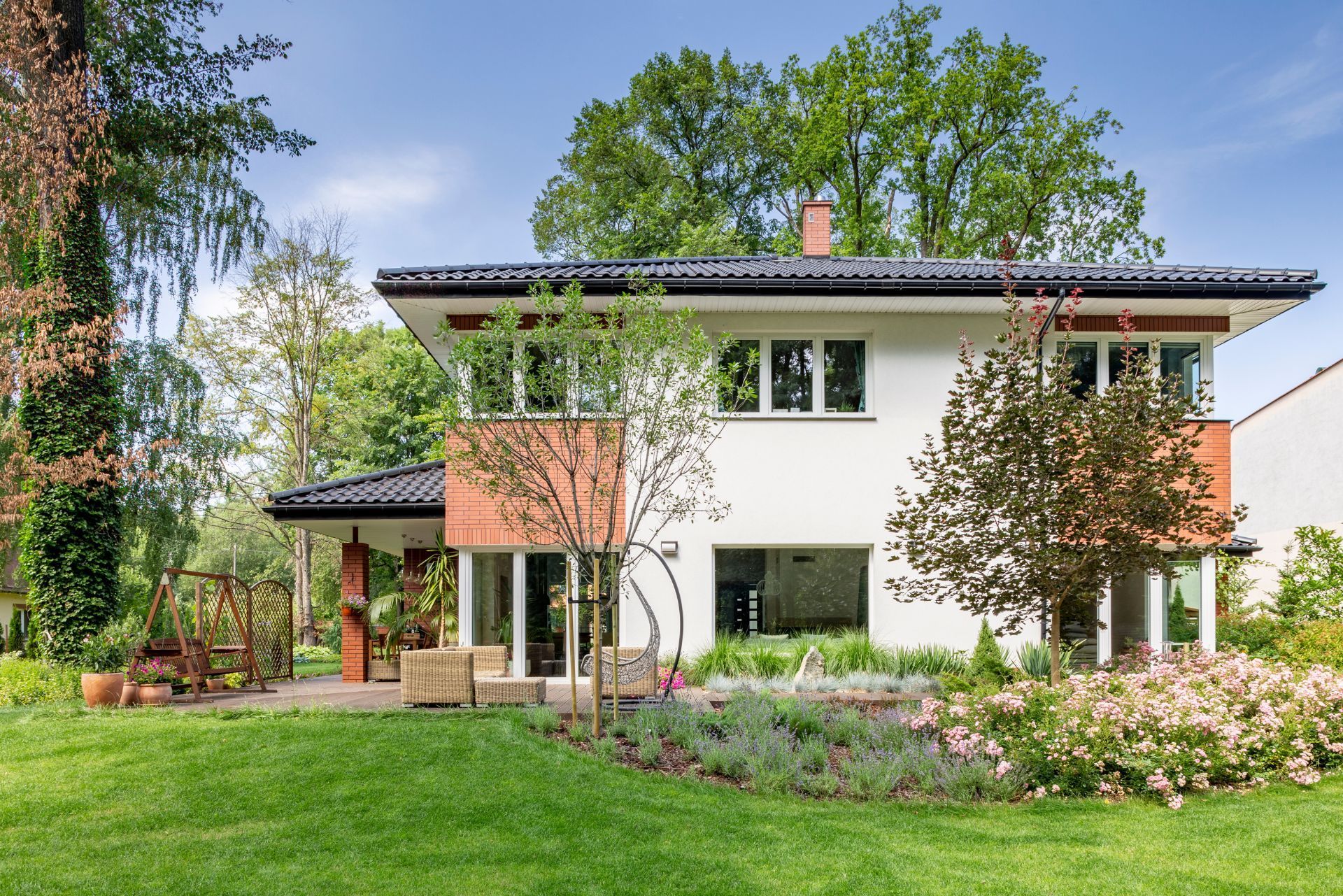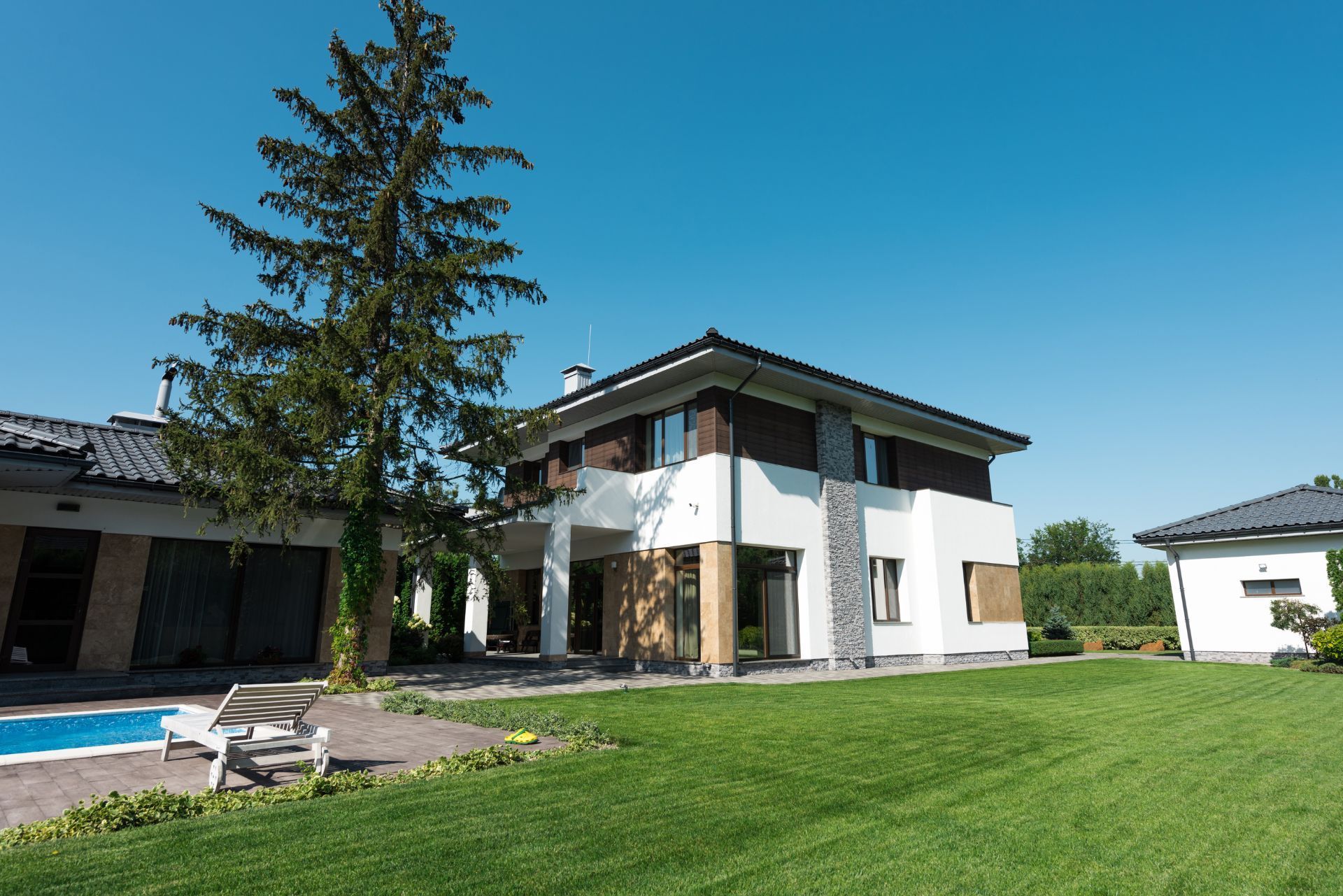
Top 3 Recommended Policies
West Hartford, CT, is a vibrant community known for its rich history, beautiful parks, and excellent schools. As homeowners in this picturesque town, understanding home insurance is crucial for protecting your investment and ensuring peace of mind. This article provides a comprehensive overview of home insurance in West Hartford, covering essential aspects such as types of coverage, factors affecting premiums, and tips for finding the best policy.
Understanding Home Insurance
Home insurance, also known as homeowners insurance, is a policy that provides financial protection against damage to your home and personal property. It also offers liability coverage in case someone is injured on your property. Understanding the fundamentals of home insurance is the first step toward making informed decisions about your coverage.
What Does Home Insurance Cover?
Home insurance typically covers several key areas, including the structure of the home, personal belongings, liability protection, and additional living expenses. The specifics can vary by policy, but here are the primary components:
- Dwelling Coverage: This protects the physical structure of your home from risks like fire, theft, and certain natural disasters.
- Personal Property Coverage: This covers personal belongings, such as furniture, electronics, and clothing, against theft or damage.
- Liability Protection: This provides coverage if someone is injured on your property or if you accidentally cause damage to someone else's property.
- Additional Living Expenses: If your home becomes uninhabitable due to a covered event, this coverage helps pay for temporary housing and living expenses.
Types of Home Insurance Policies
In West Hartford, homeowners have several types of insurance policies to choose from, each designed to meet different needs:
- HO-1 (Basic Form): This policy covers only specific perils, making it the most basic and least expensive option.
- HO-2 (Broad Form): This provides broader coverage than HO-1, protecting against more perils.
- HO-3 (Special Form): This is the most common type of home insurance, offering comprehensive coverage for the home and personal property.
- HO-4 (Renters Insurance): Designed for renters, this policy covers personal property and liability but not the dwelling itself.
- HO-5 (Comprehensive Form): This provides the most extensive coverage for both the home and personal belongings.
In addition to these standard policies, homeowners may also consider optional endorsements or riders that can enhance their coverage. For instance, if you live in an area prone to floods or earthquakes, you might want to look into separate policies or endorsements that specifically cover these risks, as they are often excluded from standard home insurance. Furthermore, many insurers offer discounts for bundling home insurance with auto insurance or for installing security systems, which can significantly reduce your premiums while increasing your peace of mind.
Another important aspect to consider is the deductible, which is the amount you agree to pay out of pocket before your insurance coverage kicks in. Higher deductibles typically result in lower premiums, but it’s crucial to choose a deductible that you can comfortably afford in the event of a claim. Regularly reviewing your home insurance policy and adjusting it as necessary can ensure that you maintain adequate coverage as your circumstances change, such as renovations, new purchases, or changes in your family structure.

Factors Affecting Home Insurance Premiums
Understanding what influences home insurance premiums can help homeowners in West Hartford make informed decisions. Several factors contribute to the cost of coverage, including:
Location
The location of a home plays a significant role in determining insurance premiums. Homes in areas prone to natural disasters, such as floods or hurricanes, may have higher rates. Additionally, proximity to fire stations and crime rates can also impact costs. West Hartford's relatively low crime rate may help keep premiums lower compared to more urban areas. Furthermore, local building codes and regulations can also affect premiums; homes built to withstand specific environmental challenges may qualify for discounts, encouraging homeowners to invest in safer construction practices.
Home Characteristics
The age, size, and condition of a home can also affect insurance premiums. Older homes may require more maintenance and repairs, leading to higher costs. Similarly, larger homes typically have higher replacement costs, which can increase premiums. Features like a swimming pool or a home office may also influence rates, as they can present additional risks. Additionally, the materials used in the construction of the home can play a role; homes built with fire-resistant materials may receive lower premiums, as they pose a reduced risk to insurers. Homeowners may also consider modern upgrades, such as security systems or smart home technology, which can further mitigate risks and potentially lower insurance costs.
Claims History
Insurance companies often consider the claims history of a homeowner when determining premiums. A history of frequent claims can lead to higher rates, as insurers may view the homeowner as a higher risk. Conversely, homeowners with a clean claims history may qualify for lower premiums. It's also worth noting that the type of claims filed can influence future premiums; for instance, claims related to water damage may be viewed differently than those for theft. Homeowners are encouraged to maintain their properties and address potential issues proactively to avoid claims that could impact their insurance costs. Regular maintenance not only preserves the home's value but can also lead to favorable terms when it comes time to renew the policy.
How to Choose the Right Home Insurance Policy
Finding the right home insurance policy requires careful consideration of various factors. Here are some steps to guide homeowners in West Hartford:
Assess Your Coverage Needs
Before shopping for insurance, it's essential to assess your coverage needs. Consider the value of your home and personal belongings, as well as any specific risks associated with your property. This assessment will help determine the amount of coverage required and the types of policies that may be suitable. For instance, if you live in an area prone to severe weather events, such as hurricanes or heavy snowfall, you may need to factor in additional coverage for potential damages caused by these natural disasters. Furthermore, evaluating the replacement cost of your home versus its market value can provide a clearer picture of the necessary coverage levels.
Shop Around for Quotes
Obtaining quotes from multiple insurance providers is crucial for finding the best rates. Different companies may offer varying premiums for similar coverage, so it’s wise to compare options. Online tools can help streamline this process, allowing homeowners to gather quotes quickly and efficiently. Additionally, consider reaching out to local agents who can provide personalized assistance and insights into the nuances of home insurance in your area. They may also be aware of any discounts available for bundling policies or for having security features in your home, such as alarms or deadbolts, which can significantly reduce your premium.
Understand Policy Exclusions
Every home insurance policy has exclusions—specific situations or perils that are not covered. It’s vital to read through the policy carefully and understand what is excluded. Homeowners may want to consider additional coverage for specific risks, such as floods or earthquakes, which may not be included in standard policies. Moreover, it’s important to note that certain high-value items, like jewelry or art collections, may require separate endorsements or riders to ensure they are adequately protected. Understanding these nuances can help prevent unpleasant surprises when filing a claim and ensure that you have the right level of protection for your most valuable assets.
Common Home Insurance Discounts
Many insurance companies offer discounts that can help lower premiums. Homeowners in West Hartford should inquire about available discounts, which may include:
Bundling Policies
Many insurers provide discounts for bundling home insurance with other types of insurance, such as auto insurance. This can lead to significant savings while simplifying the management of multiple policies. By consolidating your insurance needs with one provider, you not only save money but also streamline the claims process, making it easier to navigate in case of an emergency. Additionally, some companies may offer even steeper discounts for bundling multiple policies, such as life or renters insurance, creating a comprehensive safety net for your personal and financial well-being.
Safety Features
Homes equipped with safety features, such as smoke detectors, security systems, and deadbolt locks, may qualify for discounts. These features reduce the risk of loss or damage, making the home a safer investment for insurers. Furthermore, advanced security systems that include surveillance cameras or smart home technology can provide additional savings, as they offer enhanced protection against theft and vandalism. Homeowners should also consider regular maintenance and upgrades to these safety features, as insurers often reassess discounts based on the current state of a home’s security measures.
Claim-Free Discounts
Homeowners with a history of no claims may be eligible for claim-free discounts. Insurers reward responsible homeowners who maintain their properties and avoid filing claims. This discount can accumulate over time, leading to even greater savings as the years pass. Additionally, maintaining a good credit score can further enhance your eligibility for these discounts, as insurers often factor in creditworthiness when determining premiums. Homeowners should regularly review their insurance policies and claims history to ensure they are maximizing their potential savings.

The Claims Process
Understanding the claims process is essential for homeowners in West Hartford. Knowing what to expect can help streamline the experience in the event of a loss.
Reporting a Claim
When a loss occurs, the first step is to report the claim to the insurance company as soon as possible. Most insurers offer 24/7 claims reporting, allowing homeowners to initiate the process at their convenience. Be prepared to provide details about the incident, including the date, time, and nature of the loss. Additionally, it is advisable to have your policy number on hand, as this can expedite the process significantly. Some insurers also provide mobile apps that allow for quick reporting and tracking of your claim status, making it easier to stay informed throughout the process.
Documentation and Evidence
Gathering documentation is crucial for a successful claim. Homeowners should take photos of the damage, keep receipts for repairs, and compile any relevant information. This evidence will help support the claim and ensure a smoother process. It's also beneficial to create a detailed inventory of damaged items, including their age and value, which can further substantiate your claim. In some cases, having a professional estimate for repairs can also strengthen your position, as it provides an objective assessment of the damages incurred.
Working with an Adjuster
After reporting the claim, an insurance adjuster will typically be assigned to assess the damage. The adjuster will evaluate the situation and determine the amount of compensation based on the policy terms. Homeowners should be prepared to answer questions and provide any additional information requested by the adjuster. It’s important to remember that the adjuster’s role is to represent the insurance company, so being proactive and thorough in your communication can help ensure that your interests are adequately represented. Additionally, homeowners may want to consider having a public adjuster advocate on their behalf, especially in complex cases, to help navigate the intricacies of the claims process and maximize their potential recovery.
Understanding Policy Limits and Deductibles
Two critical components of home insurance policies are policy limits and deductibles. Understanding these terms is essential for homeowners in West Hartford.
Policy Limits
Policy limits refer to the maximum amount an insurance company will pay for covered losses. Homeowners should ensure their policy limits are sufficient to cover the full replacement cost of their home and belongings. Regularly reviewing and updating these limits is crucial, especially after significant renovations or purchases. For instance, if you’ve recently added a new room or upgraded your kitchen, the value of your home has likely increased, and your policy limits should reflect that change. Additionally, it’s important to consider the local real estate market trends, as property values can fluctuate over time, impacting the adequacy of your coverage.
Moreover, homeowners should be aware of the different types of coverage that may be included within their policy limits. For example, personal property coverage typically has its own sub-limits for specific categories of belongings, such as jewelry or electronics. Understanding these nuances can help homeowners tailor their policies to better protect their most valuable assets, ensuring they are not left underinsured in the event of a loss.
Deductibles
A deductible is the amount a homeowner must pay out of pocket before the insurance coverage kicks in. Higher deductibles typically result in lower premiums, but homeowners should choose a deductible that is affordable in the event of a claim. Balancing premium costs with potential out-of-pocket expenses is essential for effective financial planning. It’s also worth noting that some policies may offer different deductible amounts for various types of claims, such as wind or hail damage, which can be particularly relevant for homeowners in areas prone to severe weather.
Furthermore, homeowners should consider their financial situation and risk tolerance when selecting a deductible. For those with a stable income and savings, a higher deductible might be a reasonable choice to save on monthly premiums. Conversely, homeowners who may struggle to cover unexpected expenses might opt for a lower deductible to minimize their financial burden in the event of a claim. Understanding these dynamics can empower homeowners to make informed decisions that align with their financial goals and risk management strategies.elp navigate the intricacies of the claims process and maximize their potential recovery.
Local Considerations for West Hartford Homeowners
Homeowners in West Hartford face unique considerations when it comes to home insurance. Understanding local factors can help tailor coverage to meet specific needs.
Weather-Related Risks
West Hartford experiences various weather conditions, including snowstorms, heavy rain, and occasional flooding. Homeowners should consider policies that cover weather-related damages, especially if their homes are in areas prone to flooding. Additionally, investing in sump pumps or drainage systems may help mitigate risks.
Historical Homes
Many homes in West Hartford boast historical significance, which may require specialized insurance coverage. Homeowners with historical properties should seek policies that account for unique architectural features and materials, ensuring adequate protection against potential damages.
Community Resources
West Hartford offers various community resources that can assist homeowners in understanding their insurance needs. Local government websites often provide information on building codes, safety regulations, and disaster preparedness, which can be valuable when selecting an insurance policy.
Conclusion
Home insurance is a critical aspect of homeownership in West Hartford, CT. By understanding the various types of coverage, factors affecting premiums, and the claims process, homeowners can make informed decisions that protect their investments. Regularly reviewing policies and staying informed about local risks will ensure that homeowners are adequately covered, providing peace of mind in an ever-changing world.
Whether you are a first-time homeowner or looking to reassess your current policy, taking the time to understand home insurance can lead to better protection and financial security. Always consult with
insurance professionals to tailor coverage to specific needs and circumstances, ensuring that your home remains a safe haven for years to come.
Contact Us
Phone
Locations
Connecticut Location
703 Hebron Ave., 3rd Floor, Glastonbury, CT 06033
North Carolina Location
436 East 36th St., Charlotte, NC 28205


